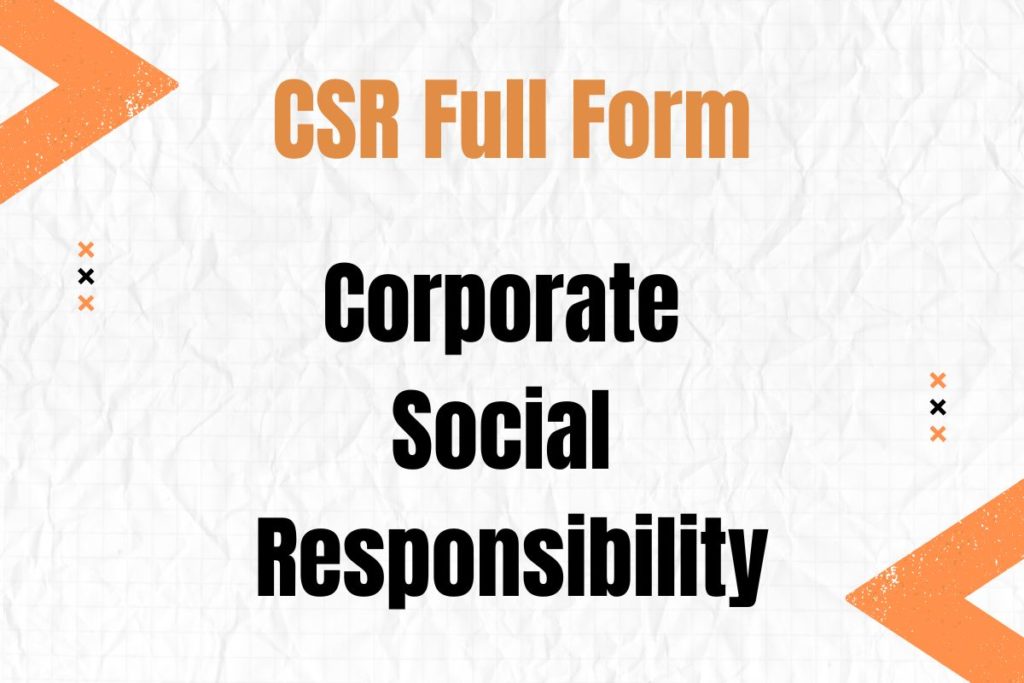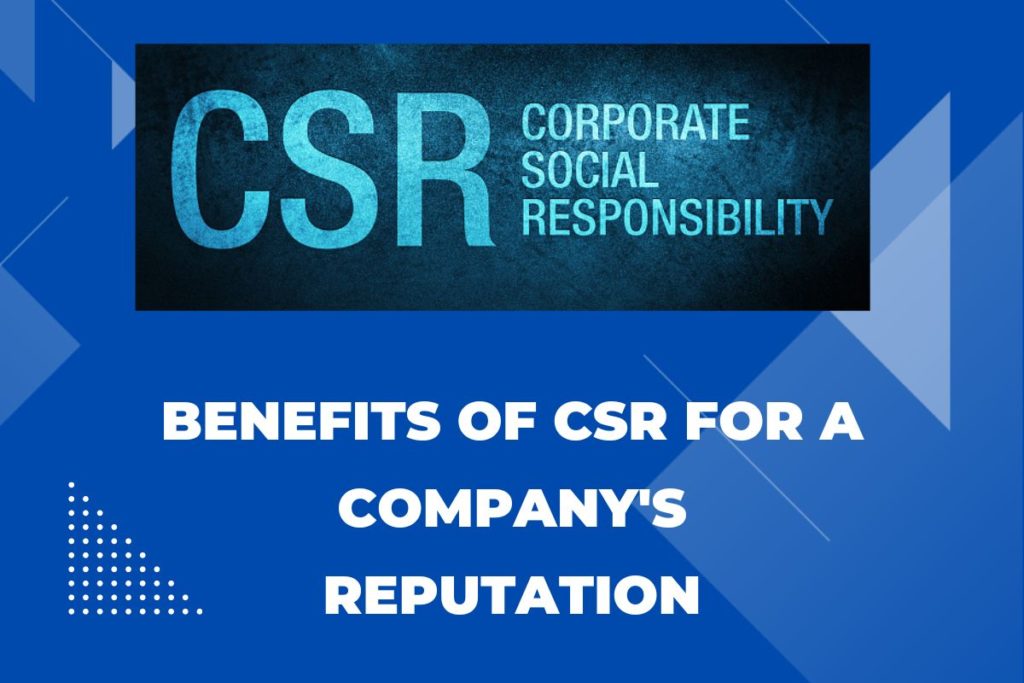In today’s world, consumers are no longer just interested in buying products or services. They are increasingly concerned about the impact that companies have on society and the environment. This is where corporate social responsibility (CSR) comes in. By implementing CSR practices, companies can not only improve their reputation but also boost their bottom line. CSR involves taking responsibility for the impact that a company has on society and the environment and working to minimize any negative effects. This can include initiatives such as reducing carbon emissions, supporting local communities, and promoting diversity and inclusion. In this article, we will explore how CSR can benefit your company and provide practical tips on how to integrate CSR into your business strategy. So, whether you are a small business owner or a CEO of a large corporation, read on to discover how CSR can help your company thrive in today’s socially conscious world.
| Introduction to CSR |
| CSR Full Form and Its Significance |
| The Importance of CSR for Businesses |
| Examples of Successful CSR Initiatives |
| Benefits of CSR for a Company’s Reputation |
| How CSR Can Improve a Company’s Bottom Line |
| Challenges and Risks of Implementing CSR Initiatives |
| How to Develop an Effective CSR Strategy |
| Communicating CSR Efforts to Stakeholders |
| Measuring the Impact of CSR Initiatives |
Introduction to CSR
In today’s rapidly changing world, the concept of Corporate Social Responsibility (CSR) has emerged as a vital aspect of business operations. Corporations are increasingly recognizing the importance of going beyond profit-making and taking responsibility for their impact on society and the environment. CSR encompasses a range of initiatives and practices that aim to contribute positively to the well-being of communities, employees, customers, and the planet.
One key element of CSR is environmental sustainability. Many companies are actively implementing measures to reduce their carbon footprint, conserve resources, and minimize waste. They are investing in renewable energy, adopting eco-friendly technologies, and implementing recycling and waste management programs. By doing so, these companies are not only mitigating their environmental impact but also setting an example for others to follow.

Another crucial aspect of CSR is promoting social welfare. Businesses are increasingly engaging in philanthropy, supporting charitable causes, and volunteering their time and expertise to make a difference in their communities. They are investing in education, healthcare, and poverty alleviation initiatives, recognizing that their success is intertwined with the well-being of the society in which they operate.
CSR also extends to the treatment of employees. Companies that prioritize CSR understand the importance of fostering a positive work environment, ensuring fair labor practices, and promoting diversity and inclusion. They provide employees with opportunities for growth and development, encourage work-life balance, and prioritize their health and well-being. Such companies understand that a motivated and engaged workforce is crucial for long-term success.
Moreover, CSR involves ethical business practices. Companies are expected to operate with integrity, transparency, and accountability. They are expected to comply with laws and regulations, promote fair competition, and avoid any form of corruption or unethical behavior. By adopting ethical standards, companies build trust with their stakeholders, including customers, investors, and the wider community.
Corporate Social Responsibility is not merely a public relations strategy; it is a mindset that embraces the idea of business as a force for good. Companies that prioritize CSR understand that long-term success goes beyond financial profits and includes social and environmental impact. By integrating CSR into their core business strategy, companies can enhance their reputation, attract and retain talented employees, build customer loyalty, and ultimately contribute to building a sustainable future for all.
CSR Full Form and Its Significance
CSR stands for Corporate Social Responsibility. It is a concept that has gained immense importance in the business world over the years. Corporate Social Responsibility refers to a company’s commitment to taking responsibility for its impact on society and the environment. It goes beyond generating profits and focuses on sustainable development, ethical practices, and community engagement.

The Full Form: Corporate Social Responsibility
Corporate: The term “corporate” indicates that CSR is primarily associated with businesses and organizations in the private sector. It emphasizes the responsibility of these entities to contribute positively to society.
Social: The word “social” refers to the impact that businesses have on various social stakeholders, including employees, customers, communities, and society at large. It encompasses actions that promote social well-being and address societal challenges.
Responsibility: “Responsibility” implies the obligation of businesses to go beyond their primary objective of profit-making and to consider the impact of their actions on stakeholders and the environment. It involves taking ownership and being accountable for the consequences of business activities.
The Importance of CSR for Businesses
Aside from the ethical imperative of contributing to society and the environment, CSR can have tangible benefits for businesses. One of the main benefits of CSR is that it can enhance a company’s reputation.

In today’s socially conscious world, consumers are looking for more than just quality products and services. They want to do business with companies that share their values and are committed to making a positive impact. A strong CSR program can help a company establish a positive reputation, which can lead to increased customer loyalty, positive word-of-mouth, and greater brand recognition.
Moreover, CSR can also improve employee morale. When employees feel that their company is committed to making a positive impact, they are more likely to feel engaged and motivated in their work. This can lead to increased productivity, better teamwork, and lower employee turnover.
Examples of Successful CSR Initiatives
There are many examples of successful CSR initiatives that have helped companies enhance their reputation and improve their bottom line.
One example is Patagonia, the outdoor clothing company. Patagonia has a long-standing commitment to sustainability and environmental protection, and this commitment is reflected in its business practices. For example, the company has implemented a program to reduce the environmental impact of its supply chain, and it has also donated a portion of its profits to environmental causes. These initiatives have helped Patagonia establish a strong reputation as a socially responsible company, which has in turn led to increased customer loyalty and a positive brand image.
Another example is Microsoft, which has made a commitment to diversity and inclusion. The company has implemented a number of initiatives to promote diversity, including setting diversity targets for its workforce and investing in programs to support underrepresented communities. These efforts have helped Microsoft establish a reputation as a company that is committed to social responsibility, which has helped attract and retain top talent.
Benefits of CSR for a Company’s Reputation

As mentioned earlier, one of the main benefits of CSR is that it can enhance a company’s reputation. A strong CSR program can help a company establish itself as a socially responsible and ethical organization, which can lead to increased customer loyalty and positive brand recognition.
Moreover, CSR can also help companies differentiate themselves from their competitors. In today’s crowded marketplace, it can be difficult for companies to stand out. By implementing CSR initiatives, companies can create a unique selling proposition that sets them apart from their competitors. This can lead to increased market share and greater profitability.
How CSR Can Improve a Company’s Bottom Line
In addition to enhancing a company’s reputation, CSR can also have a direct impact on a company’s bottom line. For example, CSR initiatives can help companies reduce their costs by improving operational efficiency and reducing waste. Moreover, CSR initiatives can also help companies attract and retain top talent, which can lead to increased productivity and innovation.
Furthermore, CSR initiatives can also help companies identify new business opportunities. For example, companies that are committed to sustainability and environmental protection may be able to identify new markets or develop new products that appeal to environmentally conscious consumers.
Challenges and Risks of Implementing CSR Initiatives

While CSR can provide many benefits, there are also risks and challenges associated with implementing CSR initiatives.
One of the main challenges is that CSR initiatives can be expensive and time-consuming to implement. Companies may need to invest significant resources in order to develop and implement effective CSR programs.
Moreover, there is also the risk of greenwashing, which is when companies make false or exaggerated claims about their environmental or social commitments. This can lead to a loss of credibility and damage to the company’s reputation.
Finally, there is also the risk that CSR initiatives may not be aligned with the company’s core business objectives. If a company’s CSR initiatives are not aligned with its overall strategy, then they may not provide any real benefits and may even detract from the company’s bottom line.
How to Develop an Effective CSR Strategy

To develop an effective CSR strategy, companies should follow several key steps:
- Identify the company’s core values and mission.
- Conduct a materiality assessment to identify the social and environmental issues that are most relevant to the company.
- Develop a CSR strategy that is aligned with the company’s core values and mission and addresses the most relevant social and environmental issues.
- Implement the CSR strategy and monitor its impact on the company’s reputation and bottom line.
- Communicate the company’s CSR efforts to stakeholders, including customers, employees, investors, and the wider community.
Communicating CSR Efforts to Stakeholders
Effective communication is key to the success of any CSR program. Companies should communicate their CSR efforts to all stakeholders, including customers, employees, investors, and the wider community.
One effective way to communicate CSR efforts is through the company’s website and social media channels. Companies can use these platforms to share information about their CSR initiatives and provide updates on their progress.
Moreover, companies should also consider engaging with stakeholders through events and other outreach efforts. For example, a company that is committed to environmental protection might sponsor a local cleanup event or host a sustainability fair.
Measuring the Impact of CSR Initiatives
To ensure that CSR initiatives are having a positive impact, companies should measure and evaluate their efforts. This can include tracking key performance indicators (KPIs) such as carbon emissions, employee engagement, and customer satisfaction.
Moreover, companies should also conduct regular stakeholder surveys to gauge the effectiveness of their CSR programs and identify areas for improvement.
Conclusion
In today’s socially conscious world, CSR has become an essential aspect of modern business practice. By taking responsibility for their impact on society and the environment, companies can not only improve their reputation but also boost their bottom line.
While implementing CSR initiatives can be challenging, the benefits are clear. CSR can help companies differentiate themselves from their competitors, reduce costs, attract and retain top talent, and identify new business opportunities.
To develop an effective CSR strategy, companies should identify their core values and mission, conduct a materiality assessment, develop a CSR strategy that is aligned with their core values and mission, implement the strategy, and communicate their efforts to stakeholders. By following these steps and measuring the impact of their CSR initiatives, companies can build a strong reputation as socially responsible and ethical organizations.




